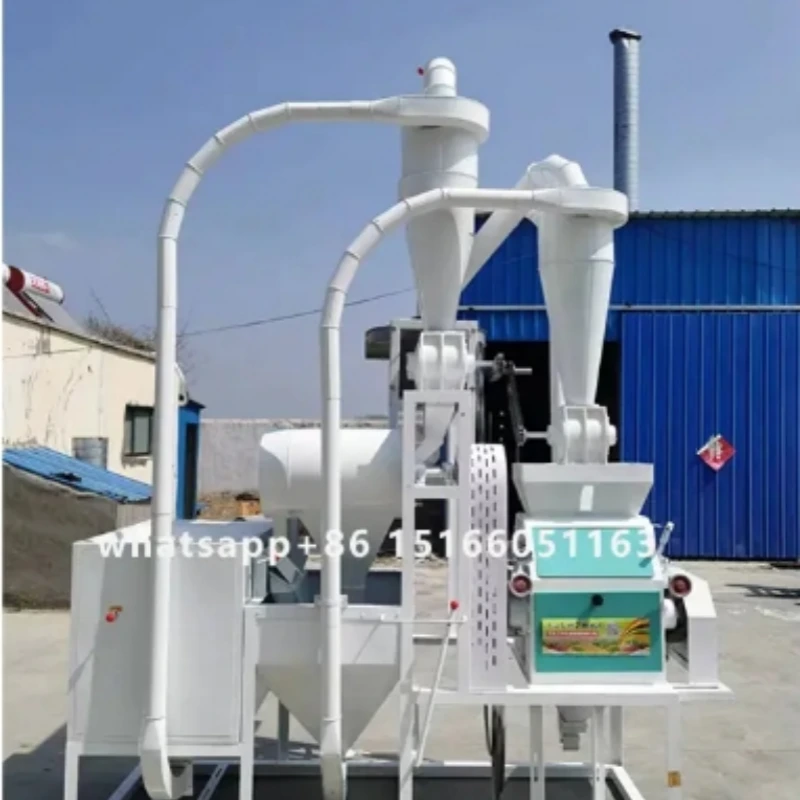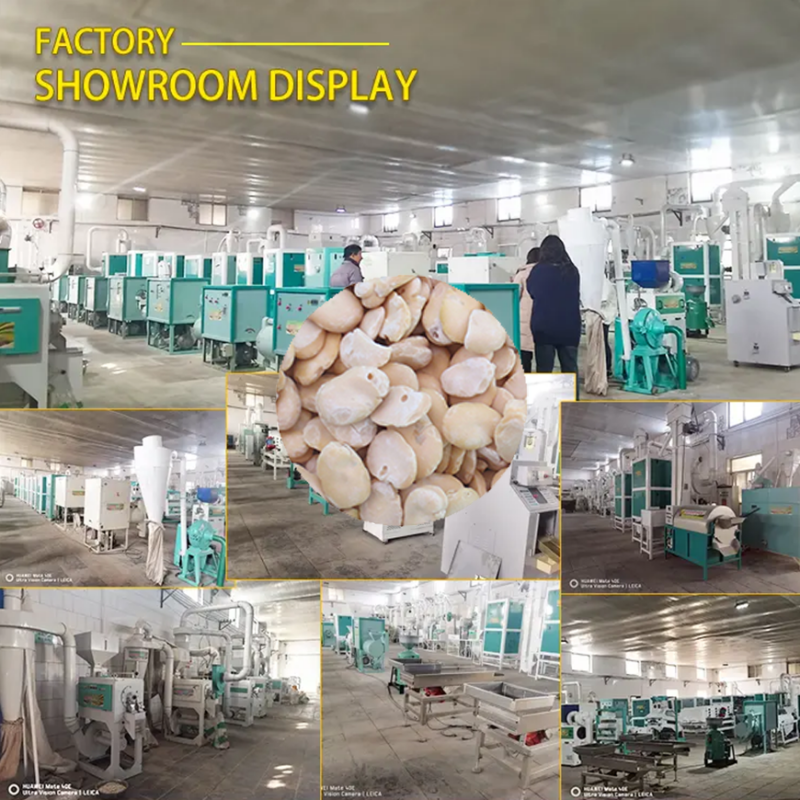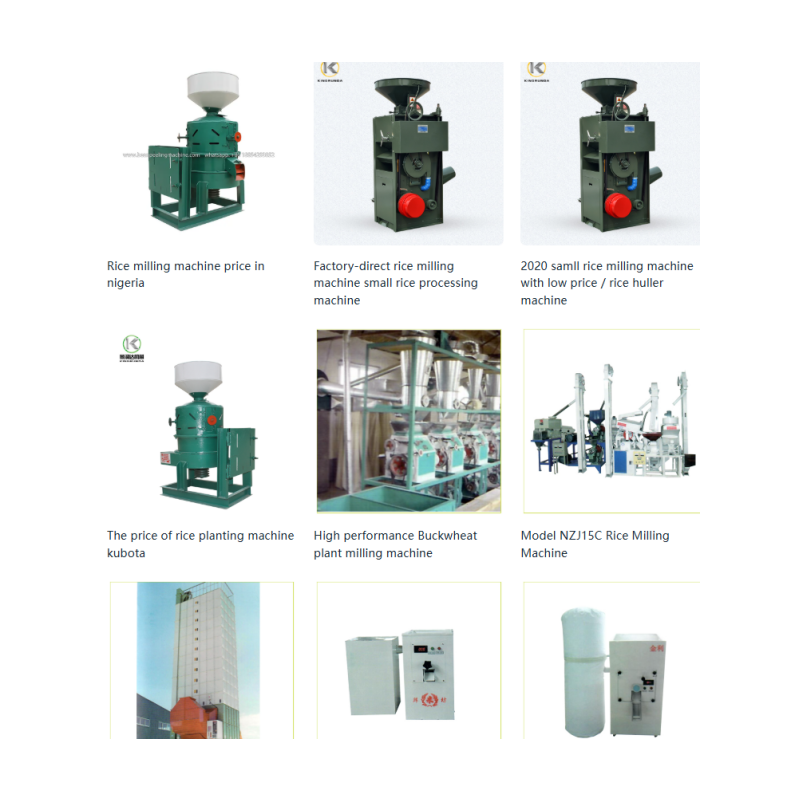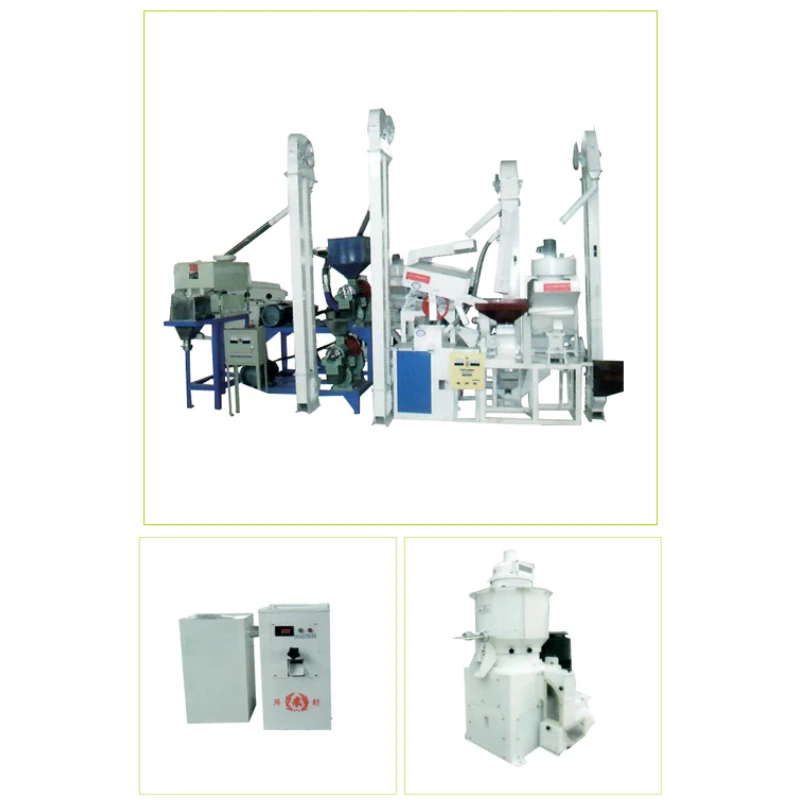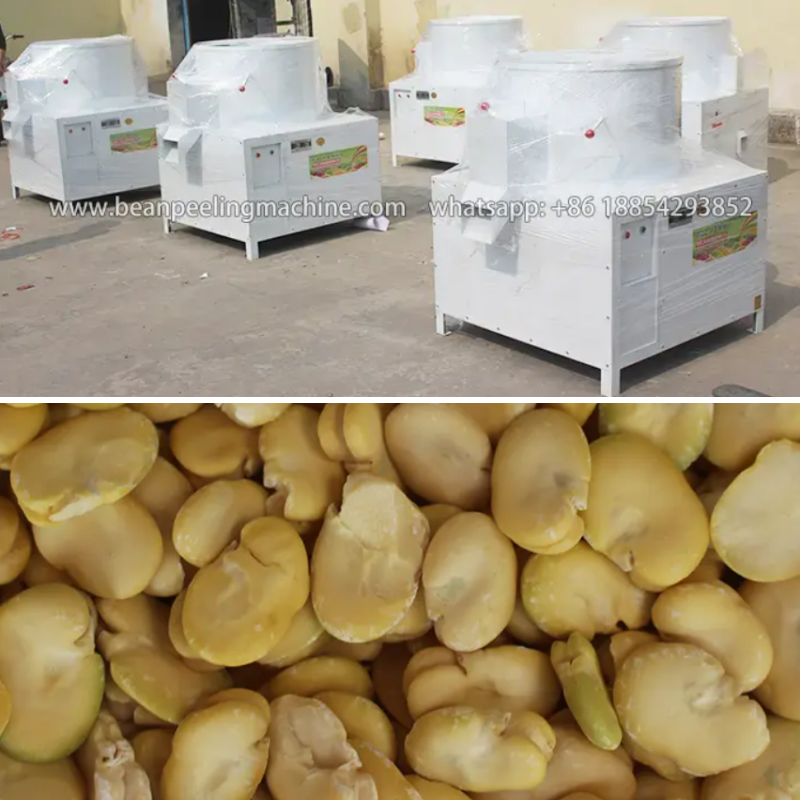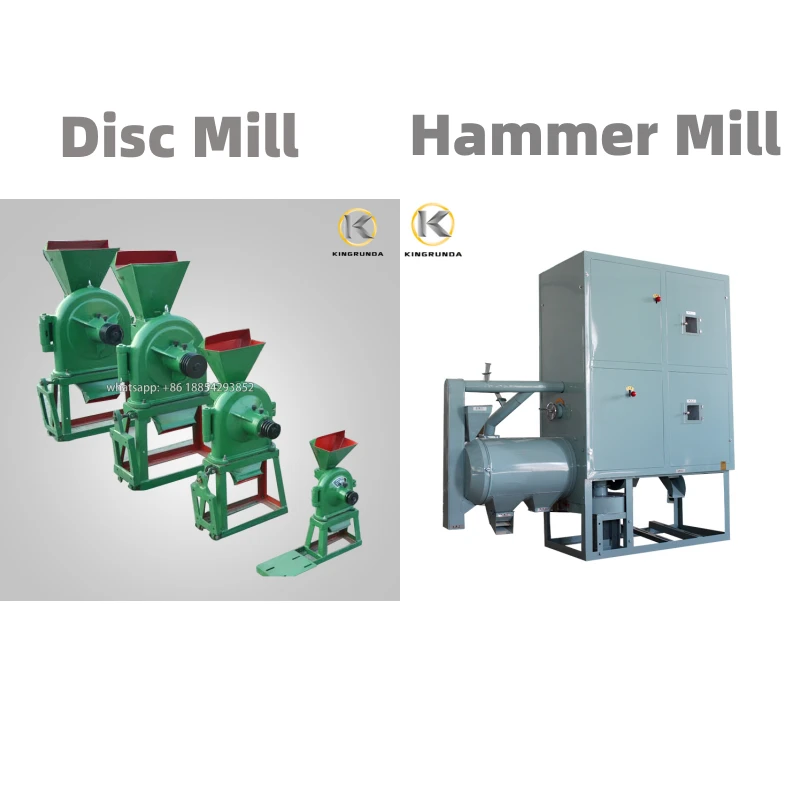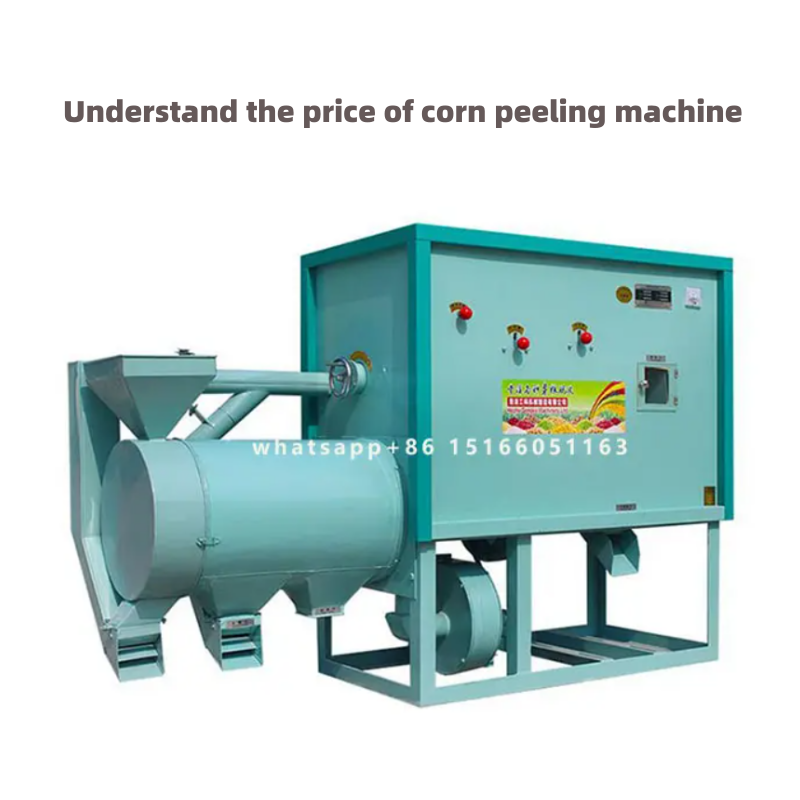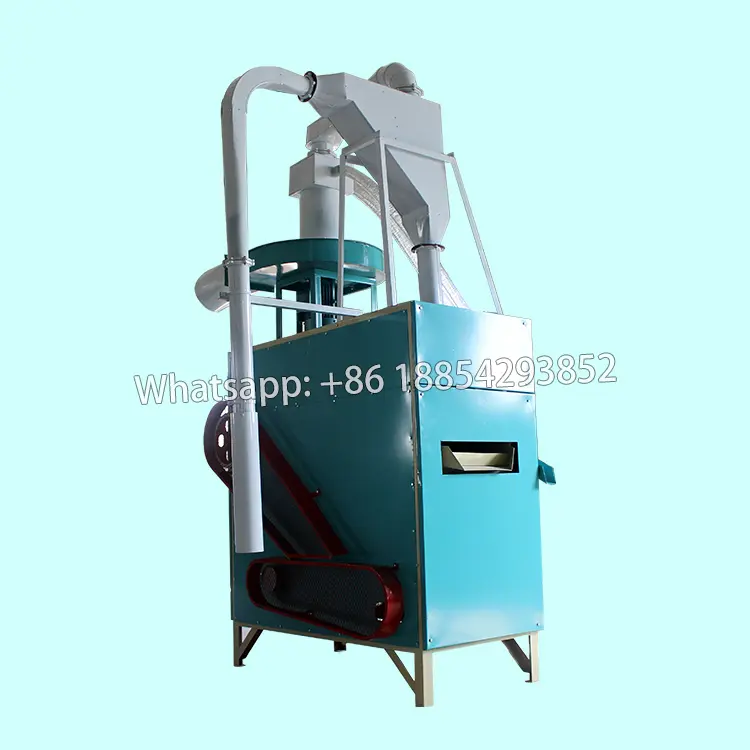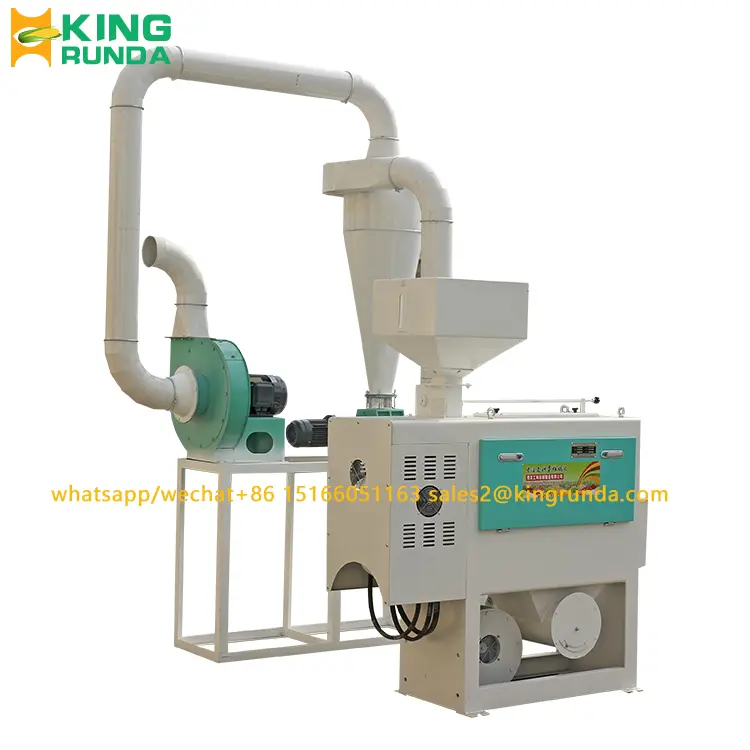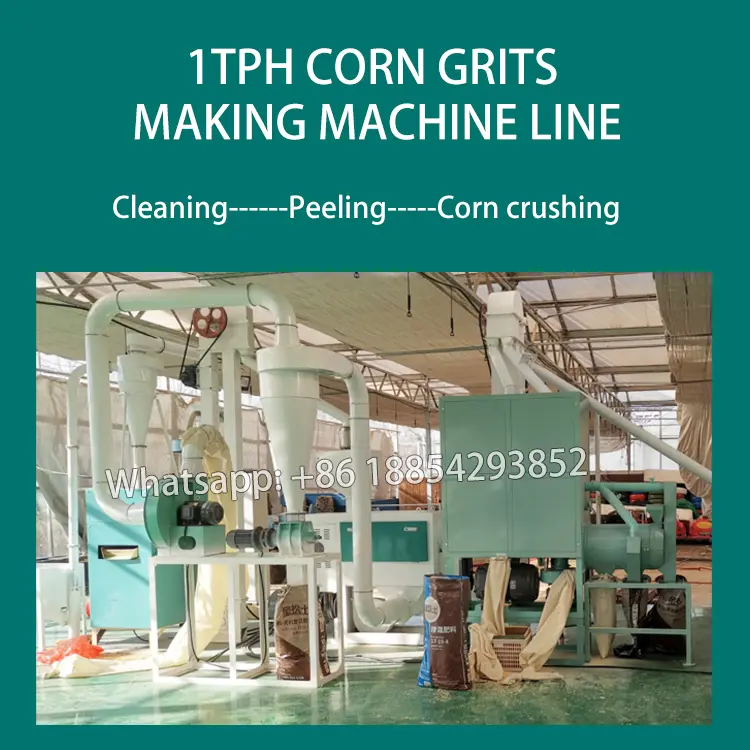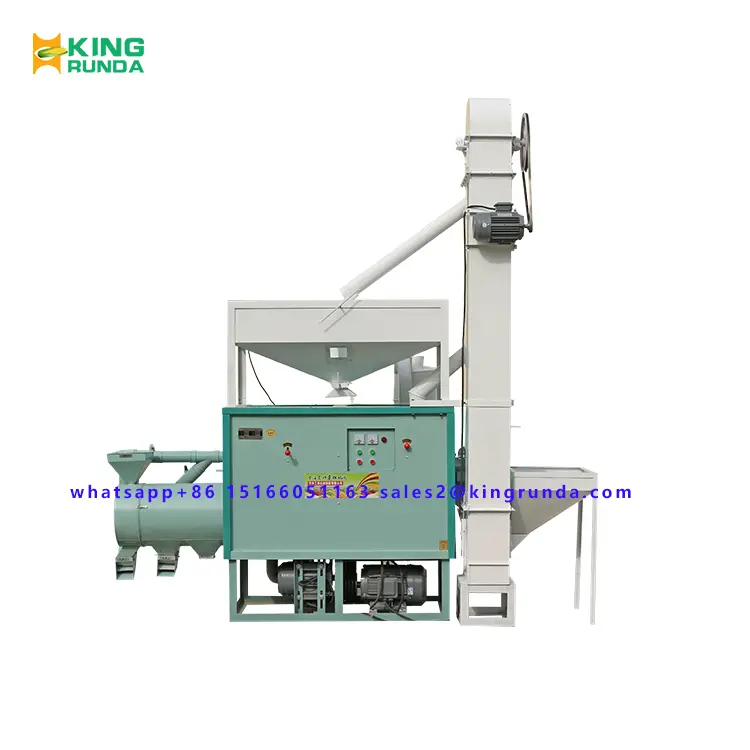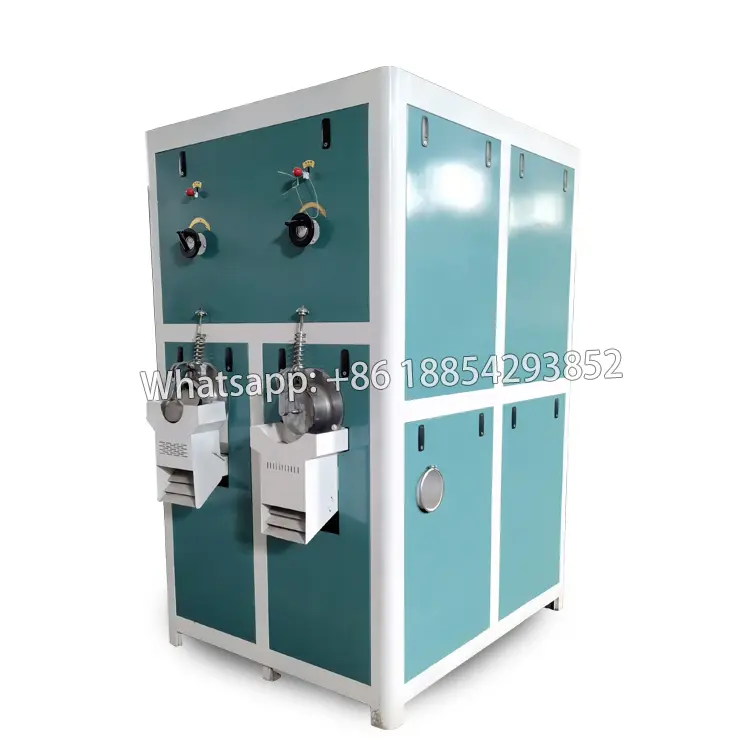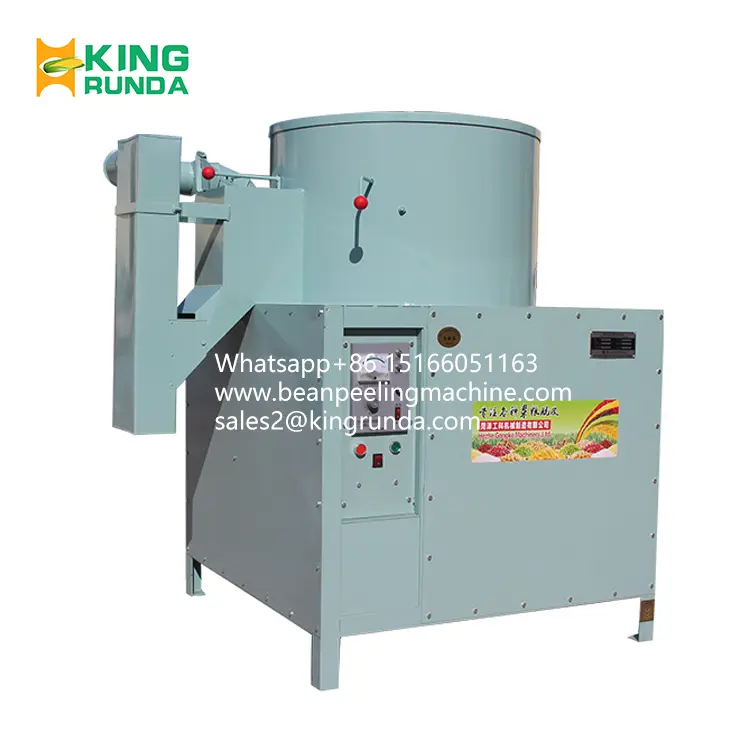Maize milling machines play a crucial role in the agricultural and food processing industry, especially in regions where maize (corn) is a staple crop. These machines transform raw maize kernels into flour or meal, making them essential for producing food products such as porridge, bread, and other maize-based dishes. Efficient milling machines not only improve productivity but also enhance the quality of the final product, benefiting both small-scale farmers and large commercial processors.
When selecting a maize milling machine, one of the most important decisions involves choosing the type of power source. The two main power types available are electric and diesel. Electric maize milling machines rely on electricity to operate, making them suitable for areas with a stable and affordable power supply. On the other hand, diesel maize milling machines use diesel fuel, offering more flexibility in locations without reliable electricity but often requiring more maintenance.
This article aims to help potential buyers weigh the pros and cons of electric versus diesel maize milling machines. By understanding the strengths and limitations of each power type, readers can make a well-informed choice that best fits their operational needs, budget, and environment. Whether you run a small local milling business or a large processing plant, choosing the right machine is key to success.
Overview of Electric Maize Milling Machines
Electric maize milling machines are designed to process maize kernels into flour or meal by using electric power to drive their motors. These machines typically consist of several components including a hopper where maize is loaded, grinding stones or plates, a motor, and an output chute where the milled flour is collected. When switched on, the electric motor powers the grinding mechanism, which crushes and grinds the maize kernels into the desired consistency. The process is efficient, fast, and requires minimal manual labor, making electric maize milling machines popular among many users.
How Electric Maize Milling Machines Work
Electric maize milling machines operate by converting electrical energy into mechanical energy through an electric motor. The motor rotates the grinding plates or stones, which pulverize the maize kernels fed from the hopper. The ground maize then passes through a sieve that determines the fineness of the flour. The operator can adjust the sieve size depending on the intended use of the maize flour, whether for fine corn flour or coarser maize meal. Because the electric motor provides consistent and controllable power, these machines maintain a steady milling speed, resulting in uniform quality and output.
Common Features and Typical Uses
Most electric maize milling machines come equipped with safety features such as emergency stop buttons and protective guards around moving parts. They are generally compact, easy to operate, and require less physical effort compared to manual or diesel-powered machines. Many models include adjustable settings to control the fineness of the flour and the speed of milling. Additionally, electric milling machines usually produce less noise and emissions, making them more suitable for indoor use.
Typical uses of electric maize milling machines include small to medium-sized milling businesses, urban and peri-urban food processing centers, and community mills. They are especially preferred in places where the electricity supply is reliable and affordable. Many smallholder farmers who want to add value to their maize harvest by producing flour for local markets find electric milling machines convenient and cost-effective.
Ideal Settings for Electric Maize Milling Machines
Electric maize milling machines perform best in environments where electricity is stable and readily accessible. Urban areas, towns, and peri-urban regions with consistent power supply are ideal for these machines. In such settings, operators can benefit from the cleaner, quieter operation and reduced maintenance compared to diesel-powered alternatives.
Because electric machines rely entirely on electricity, they may not be suitable for remote or rural areas where power outages are frequent or electricity is unavailable. However, in places with access to solar or alternative energy sources, electric maize milling machines can also be integrated into sustainable, off-grid milling solutions.
In summary, electric maize milling machines offer a modern, efficient, and environmentally friendly way to process maize, particularly in well-electrified areas. Their ease of use, lower noise levels, and precision make them an excellent choice for many milling businesses focused on quality and sustainability.
Overview of Diesel Maize Milling Machines
Diesel maize milling machines are powered by diesel engines, providing an alternative to electric-powered mills, especially in locations where electricity supply is unreliable or unavailable. These machines use internal combustion engines to generate the mechanical power needed to grind maize kernels into flour or meal. Because they operate independently of the electrical grid, diesel maize milling machines are often the preferred choice in rural and off-grid areas.
How Diesel Maize Milling Machines Operate
Diesel maize milling machines function by converting the chemical energy stored in diesel fuel into mechanical energy through the combustion process inside the engine. When the diesel engine is started, it drives the grinding mechanism, which usually consists of grinding plates or stones similar to those found in electric mills. The maize kernels are fed into the hopper and ground into flour as the engine rotates the milling components. Operators can adjust settings to control the texture of the final product, whether they want fine maize flour or coarser meal.
The diesel engine requires fuel, oil, and periodic maintenance such as oil changes and filter replacements to ensure smooth operation. Because the engine operates independently of external power sources, the machine can be moved and used in remote areas without worrying about electricity availability.
Key Features and Typical Applications
Diesel maize milling machines are generally robust and designed for heavy-duty use. They often feature a sturdy frame to support the weight of the engine and grinding components. These machines tend to be larger and heavier than electric counterparts, making them less portable but more powerful. Some models include wheels or trailers for easier transportation between sites.
Common features include a fuel tank, air filters, mufflers to reduce noise, and controls for adjusting engine speed. Because diesel engines produce exhaust fumes, diesel mills require well-ventilated or outdoor settings to avoid indoor air pollution.
Typical applications for diesel maize milling machines include rural communities, small villages, and agricultural areas where electricity is scarce or intermittent. They are widely used by small-scale farmers, cooperatives, and local entrepreneurs who need reliable milling without dependence on the power grid. Diesel machines are also favored in regions where power outages are frequent or where the cost of connecting to the electrical grid is prohibitive.
Ideal Settings for Diesel Maize Milling Machines
Diesel maize milling machines are best suited for rural and off-grid environments with limited or unstable electricity supply. Their ability to operate independently makes them invaluable in remote farming areas, developing regions, and places where electricity infrastructure is unreliable or nonexistent.
These machines are also ideal for mobile milling services, allowing operators to travel between villages or farms, offering milling services on demand. However, diesel mills require access to fuel, regular maintenance, and appropriate ventilation to operate safely and efficiently.
In summary, diesel maize milling machines provide a reliable, powerful solution for maize processing in areas where electric power is not guaranteed. Their independence from the grid and durability make them essential equipment in rural agricultural economies, despite higher noise and maintenance demands compared to electric models.
Pros of Electric Maize Milling Machines
Electric maize milling machines have become increasingly popular due to their efficiency, ease of use, and environmental benefits. Compared to diesel-powered alternatives, electric milling machines offer several significant advantages that make them a preferred choice for many small-scale farmers, millers, and food processors.
Lower Operating Noise and Emissions
One of the most noticeable benefits of electric maize milling machines is their quieter operation. Unlike diesel engines, which generate loud noise during combustion and operation, electric motors run almost silently. This lower noise level makes electric mills more suitable for use in urban or community settings where noise pollution can be an issue. Quieter machines create a more comfortable work environment for operators and nearby residents.
Additionally, electric maize milling machines produce no direct emissions. Diesel engines emit exhaust fumes including carbon monoxide, nitrogen oxides, and particulate matter, which can harm human health and contribute to environmental pollution. Electric machines, on the other hand, run cleanly without producing harmful gases on-site, improving air quality and making them a more environmentally friendly choice.
Cleaner and More Environmentally Friendly
Electric maize milling machines support sustainability efforts by reducing the carbon footprint of maize processing. Although the environmental impact depends partly on how the electricity is generated, electric machines themselves do not burn fuel or emit greenhouse gases during operation. This contrasts sharply with diesel mills, which rely on fossil fuels and emit significant pollution.
For businesses and communities aiming to reduce environmental impact, electric maize milling machines align well with green energy initiatives. In some cases, electric mills can even be powered by renewable energy sources such as solar panels, further enhancing their eco-friendliness.
Easier Maintenance (Fewer Moving Parts)
Electric maize milling machines typically have fewer moving parts than diesel-powered models. The electric motor itself is simpler in design compared to the internal combustion engine in a diesel mill. This simplicity translates to easier maintenance, fewer breakdowns, and lower repair costs.
Maintenance for electric mills often involves basic tasks such as cleaning, lubrication of grinding components, and occasional motor checks. In contrast, diesel engines require more extensive upkeep, including fuel system cleaning, oil changes, filter replacements, and regular engine servicing. For small business owners or operators with limited technical skills, electric maize milling machines offer a more user-friendly maintenance experience.
Usually Faster Start-Up and Shutdown
Electric maize milling machines provide near-instantaneous start-up and shutdown compared to diesel machines. Starting a diesel engine often involves a warm-up period and careful handling to avoid damage, while electric mills start immediately with the flip of a switch.
This quick start-up capability improves operational efficiency and allows operators to respond quickly to milling demand. Similarly, electric machines can be shut down immediately without the need for cooling down the engine, saving time and simplifying operations.
More Precise Control Over Operation
Electric maize milling machines offer better precision and control during milling. Operators can easily adjust the motor speed, grinding pressure, and output quality to meet specific requirements. This level of control helps produce consistent maize flour or meal with uniform texture and quality.
The consistent power supply from electricity also ensures steady milling speed, reducing the risk of overheating or uneven grinding. In contrast, diesel-powered machines may experience fluctuations in engine speed and output due to fuel supply variations or mechanical wear.
Electric maize milling machines provide lower noise and emissions, easier maintenance, faster start-up, and more precise operation. These advantages make them an excellent choice for users in urban areas or places with stable electricity, where clean and efficient milling is a priority.
Cons of Electric Maize Milling Machines
While electric maize milling machines offer numerous benefits, they also come with certain limitations that can impact their suitability depending on the user’s environment and resources. Understanding these drawbacks is crucial for making an informed decision when choosing between electric and diesel-powered options.
Dependence on Stable Electricity Supply
The primary limitation of electric maize milling machines is their complete reliance on a stable and continuous electricity supply. Without electricity, these machines cannot operate at all. This dependence can be a significant drawback in regions where power infrastructure is weak, unreliable, or nonexistent. In many rural areas or developing countries, frequent power outages or voltage fluctuations can disrupt milling operations, leading to downtime and potential loss of productivity.
Because electric mills cannot run without power, businesses using them must ensure a reliable electricity source or invest in backup systems such as generators or battery storage. This reliance on electricity makes electric maize milling machines less flexible in locations where power stability is a challenge.
Limited Use in Areas with Frequent Power Outages
In places with frequent blackouts or load shedding, electric maize milling machines become impractical for consistent use. Interruptions in power supply not only halt milling but can also damage the machinery if power cuts happen abruptly during operation. This unreliability can frustrate operators and customers who depend on continuous milling services.
In contrast, diesel maize milling machines, which operate independently of the electric grid, are more suited for such environments. Therefore, electric machines may not be the best investment for rural communities or remote areas lacking dependable power.
Possible Higher Electricity Costs
Even in areas with reliable electricity, the cost of power can affect the overall economics of running an electric maize milling machine. Electricity rates can be high in certain regions, especially in countries where energy production relies heavily on expensive fossil fuels or where subsidies are limited. High energy costs increase the operational expenses for milling businesses, which may reduce profit margins.
Operators must consider local electricity tariffs and calculate whether electric milling is cost-effective compared to diesel-powered alternatives, which use fuel that may sometimes be cheaper or easier to source.
May Require Additional Investment in Electrical Infrastructure
In some cases, businesses or communities interested in electric maize milling machines may need to invest in upgrading their electrical infrastructure. This might include installing new wiring, transformers, or power backup systems to support the machine’s power requirements. For small-scale operators or startup milling businesses, these additional upfront costs can be a significant barrier.
Furthermore, if electricity supply is inconsistent or of low quality (e.g., frequent voltage spikes), the milling machine might suffer damage or reduced lifespan without proper electrical safeguards.
The main cons of electric maize milling machines include their dependence on stable electricity, limited use in areas with frequent outages, potential high electricity costs, and possible extra expenses for electrical infrastructure upgrades. These factors should be carefully considered when deciding if an electric maize milling machine fits your milling needs.
Pros of Diesel Maize Milling Machines
Diesel maize milling machines have long been a popular choice in many parts of the world, especially in rural and off-grid areas. Their unique advantages make them well-suited to environments where electric power is unreliable or unavailable. Below are some of the key benefits of diesel-powered maize milling machines.
Independence from Electricity Grid
One of the greatest advantages of diesel maize milling machines is their complete independence from the electricity grid. Since these machines are powered by diesel engines, they do not require an electrical connection to operate. This makes them especially valuable in remote locations or developing regions where access to electricity is limited or unstable. Operators can run diesel mills anytime as long as they have access to diesel fuel, making them a dependable choice for continuous maize processing.
Reliable Operation in Remote or Off-Grid Locations
Diesel maize milling machines offer consistent and reliable operation in off-grid areas. For farmers, small businesses, and milling cooperatives located far from urban centers, diesel-powered machines provide a practical solution for processing maize without worrying about power outages or voltage fluctuations. This reliability ensures that communities can have steady access to maize flour, improving food security and local economies.
Often More Powerful for Heavy-Duty Milling
Diesel engines are known for their high torque output, which translates into more power for heavy-duty milling tasks. Diesel maize milling machines can handle larger volumes of maize and tougher kernels more effectively than many electric models. This makes them suitable for larger-scale milling operations or businesses that require high throughput. The powerful engine also allows diesel mills to maintain consistent grinding speed even under heavy load, which improves milling efficiency.
Flexibility of Use Anywhere Fuel Is Available
Diesel maize milling machines offer great flexibility because they can be used wherever diesel fuel is accessible. This is especially important in rural or agricultural areas where electricity is absent but fuel supply chains exist. Operators can easily refuel their machines from local fuel stations, ensuring continuous operation. Additionally, many diesel milling machines are designed with portability in mind, some mounted on trailers or wheels, allowing milling services to be transported to different locations as needed.
This flexibility is also beneficial for mobile milling entrepreneurs who travel between villages or farms to provide milling services on demand. Unlike electric mills, diesel machines do not require the presence of power infrastructure, giving operators freedom to serve a wider customer base.
Diesel maize milling machines offer several strong advantages: independence from the electricity grid, reliable performance in remote areas, powerful milling capacity, and operational flexibility wherever fuel is available. These benefits make diesel mills a vital option for maize processing in many rural and developing regions around the world.
Cons of Diesel Maize Milling Machines
While diesel maize milling machines offer significant advantages, especially in off-grid and rural areas, they also come with several drawbacks that potential buyers should carefully consider.
Higher Noise and Air Pollution
One of the most noticeable disadvantages of diesel maize milling machines is the noise they generate during operation. Diesel engines are inherently loud due to the combustion process and mechanical parts working under high pressure. This noise can cause discomfort to operators and nearby residents, making diesel mills less suitable for densely populated or indoor environments.
In addition to noise, diesel engines produce exhaust emissions that contribute to air pollution. These emissions include carbon monoxide, nitrogen oxides, and particulate matter, which can be harmful to human health and the environment. Prolonged exposure to diesel exhaust fumes can cause respiratory issues, making proper ventilation essential when operating diesel mills indoors.
Regular Fuel Costs and Fuel Storage Concerns
Diesel maize milling machines require a steady supply of diesel fuel, which can be costly depending on the region. The ongoing expense of purchasing fuel adds to the operational costs and must be factored into the overall budget for running a diesel mill.
Moreover, storing diesel fuel safely can be a challenge, especially for small-scale operators. Diesel is flammable and requires proper containers and storage facilities to prevent accidents or fuel degradation. Poor fuel quality or contamination can also damage the engine, leading to more frequent repairs.
More Maintenance Required (Engine Servicing, Oil Changes)
Diesel engines are mechanically complex and demand regular maintenance to keep them running efficiently. This includes periodic oil changes, filter replacements, injector cleaning, and general engine servicing. Failure to perform routine maintenance can result in engine breakdowns and costly repairs.
Compared to electric maize milling machines, diesel mills require more technical knowledge and time commitment for upkeep. Operators must either have the skills to maintain the engine themselves or access professional servicing, which might not be readily available in remote areas.
Heavier and Less Portable
Diesel maize milling machines are generally heavier and bulkier than their electric counterparts. The weight of the diesel engine and associated components makes these machines less portable, which can limit their use in mobile milling operations or where frequent relocation is needed.
Although some diesel mills come mounted on trailers or wheels to aid movement, they still require more effort and transportation resources to relocate compared to compact electric machines. This lack of portability can be a drawback for entrepreneurs who want to provide milling services in multiple locations.
The main cons of diesel maize milling machines include higher noise and pollution levels, ongoing fuel expenses and storage concerns, more demanding maintenance, and reduced portability. These factors should be carefully weighed against their benefits when deciding on the best maize milling solution.
Cost Comparison: Electric vs. Diesel Maize Milling Machines
When deciding between electric and diesel maize milling machines, understanding the cost implications is crucial. Both initial investment and ongoing expenses vary significantly depending on the machine type, location, and usage.
Initial Purchase Price Comparison
Generally, diesel maize milling machines tend to have a higher upfront cost than electric models. This is mainly due to the complexity and size of diesel engines. Electric maize milling machines, being simpler and smaller, are often more affordable initially, making them attractive for small businesses or startups with limited capital.
Running and Maintenance Costs Over Time
Operating costs differ greatly between electric and diesel machines. Electric mills usually have lower running costs, especially in areas where electricity is affordable and stable. They require less maintenance since electric motors have fewer moving parts and no fuel system to service.
Conversely, diesel maize milling machines incur higher running costs. Regular fuel purchases, engine oil changes, and more frequent maintenance increase the total cost of ownership. Additionally, fuel price fluctuations can affect profitability.
Long-Term Cost-Effectiveness Depending on Location and Use
The overall cost-effectiveness of either machine depends heavily on local factors. In urban areas with reliable, affordable electricity, electric milling machines tend to be more economical in the long run. However, in rural or off-grid regions with no access to electricity, diesel machines, despite higher fuel and maintenance costs, offer better value due to their independence from the power grid.
| Cost Factor | Electric Maize Milling Machine | Diesel Maize Milling Machine |
|---|---|---|
| Initial Purchase | Lower | Higher |
| Fuel/Energy Cost | Moderate (depends on electricity rates) | High (diesel fuel required) |
| Maintenance | Low | High (engine servicing) |
| Portability | Moderate | Lower (heavier) |
| Long-Term Suitability | Best in areas with stable electricity | Best in off-grid or unstable power areas |
Choosing the right maize milling machine requires balancing initial investment against ongoing costs and operational needs. Considering your location’s electricity availability and fuel prices will help you make the most cost-effective decision.
Environmental Impact Considerations
When comparing electric and diesel maize milling machines, understanding their environmental impact is essential for making sustainable choices.
Emissions and Pollution from Diesel Engines
Diesel maize milling machines generate significant emissions during operation. Combustion of diesel fuel releases carbon dioxide (CO₂), nitrogen oxides (NOₓ), particulate matter, and other pollutants that contribute to air pollution and climate change. These emissions can harm human health, causing respiratory problems and other illnesses, especially in poorly ventilated areas. The noise pollution from diesel engines is also a concern in community or urban settings. Proper maintenance can reduce but not eliminate these environmental impacts.
Energy Consumption and Carbon Footprint of Electric Machines
Electric maize milling machines themselves produce no direct emissions during operation, making them cleaner on-site. However, the overall environmental footprint of electric machines depends heavily on the source of the electricity they use. If the electricity is generated from renewable sources such as solar, wind, or hydropower, the carbon footprint is significantly reduced. Conversely, if the power supply relies on fossil fuels like coal or natural gas, the indirect emissions can be substantial.
Therefore, electric maize milling machines have the potential to be environmentally friendly, especially when paired with green energy solutions. In contrast, diesel machines consistently emit pollutants regardless of location, making their environmental impact more severe.
In summary, electric maize milling machines offer a cleaner alternative, but their true sustainability depends on the local energy mix, while diesel machines contribute to air and noise pollution with every use.
Which One Should You Choose?
Choosing between electric and diesel maize milling machines depends on several critical factors that align with your specific needs, location, and priorities.
Key Factors to Consider:
Location & Power Availability: If you are in an urban or peri-urban area with reliable and affordable electricity, an electric maize milling machine is typically the better choice. For rural or off-grid locations where power supply is unstable or nonexistent, a diesel machine offers greater reliability.
Budget: Electric maize milling machines generally have a lower upfront cost and lower maintenance expenses, making them attractive for startups or small businesses. Diesel machines usually require a higher initial investment and incur ongoing fuel and maintenance costs.
Environmental Concerns: Electric machines produce no direct emissions and operate quietly, making them environmentally friendlier—especially if powered by renewable energy. Diesel mills emit pollutants and noise, which may be a concern for community health and sustainability.
Business Scale and Usage: For small to medium operations with access to stable electricity, electric machines provide efficient, cleaner milling. Larger scale or mobile operations in remote areas may benefit more from diesel machines due to their power and operational independence.
Recommended Scenarios:
Choose Electric Maize Milling Machines if:
You have stable and affordable electricity.
Noise and environmental impact are important considerations.
You prefer easier maintenance and quicker start-up.
Your milling operation is stationary or semi-stationary.
Choose Diesel Maize Milling Machines if:
You operate in rural, off-grid, or electricity-scarce areas.
You need a powerful machine for heavy-duty milling.
Portability and independence from the grid are essential.
You can manage higher fuel and maintenance costs.
Ultimately, your choice should balance operational needs, financial capacity, and environmental responsibility to ensure sustainable and efficient maize milling.
Conclusion
Both electric and diesel maize milling machines offer valuable benefits, but each comes with its own set of limitations. Choosing the right machine depends largely on your location, available resources, and business goals.
Electric maize milling machines are ideal for areas with reliable electricity. They are quieter, cleaner, and easier to maintain, with lower operating costs in the long run. Their environmentally friendly nature and ease of use make them well-suited for urban operations and small to medium-sized milling businesses.
Diesel maize milling machines, on the other hand, are the better option for off-grid or remote locations. They offer strong, reliable performance regardless of the power supply. While they require more maintenance and incur fuel costs, their independence from electricity and ability to handle heavy-duty milling make them a dependable choice for rural and mobile milling operations.
When choosing between the two, buyers should carefully evaluate:
Power availability in their region
Initial budget and long-term operating costs
Environmental considerations
The scale and mobility of their maize milling needs
There is no one-size-fits-all answer, but with thoughtful planning and a clear understanding of your local conditions, you can select the machine that brings the best long-term value to your business.
As a professional maize milling machine manufacturer based in China, we offer a wide range of high-quality electric and diesel models tailored to meet different customer needs. Whether you’re starting a small milling business or scaling up your operations, we’re here to help you find the right solution.
Welcome to contact us for expert advice and the best maize milling machines for your needs!
